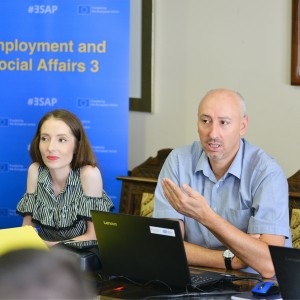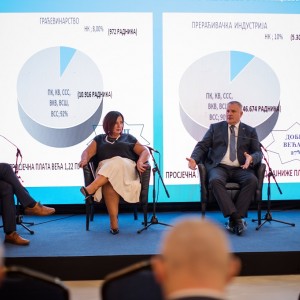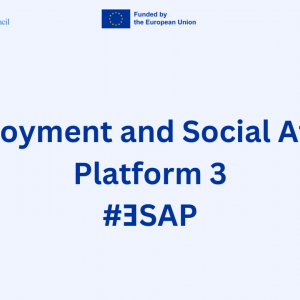ILO ESAP 2: Regional meeting with Economic and Social Councils starts in Montenegro

ILO ESAP 2: Regional meeting of Economic and Social Councils
Representatives of Economic and Social Councils (ESC) from Albania, Bosnia and Herzegovina, Kosovo*, North Macedonia, Montenegro and Serbia started their two-day regional meeting on May 5, 2022.
The meeting is organised as part of Employment and Social Affairs Platform (ESAP) 2 project. ESAP 2 is a regional 3-year project funded by the European Union (EU) and implemented by the International Labour Organization (ILO).
The meeting, attended by 50 participants, was comprised of the two consecutive workshops: “Promoting Collective Bargaining in the Western Balkans” (held on the first day), and “Improving Performance of the Economic and Social Councils in the Western Balkans” (held on the second day).
The main focus of the first workshop was the discussion on the draft of regional report on collective bargaining in the Western Balkans and its suggested policy guidelines. The report and its findings were presented by Prof. Attila Kun, a Hungarian Labour Law and Collective Bargaining expert, and based on individual assessments conducted by the ILO in 2021.
Collective bargaining, as considered by the ILO, is a fundamental and enabling right at work. Recent studies show that the collective bargaining is an equaliser of working conditions capable to closing gaps for vulnerable workers.
During his presentation, Prof. Kun reminded participants on the substantial tradition that collective bargaining has in the region even though turbulent economic changes (privatisation, for example) were not in its favour. Prof. Kun also presented the main challenges of the collective bargaining in the region stating that, while collective bargaining regimes in the Western Balkans show certain differences, this group of Western Balkans countries have many industrial relations features in common, such as weak bargaining power of social partners and the general lack of awareness of the tangible, “day to day” benefits and values of collective bargaining.
“World of work is changing, and collective bargaining can deliver best solutions for emerging new issues” said Prof. Kun “Many topics of labour law should be built with collective bargaining agreements”.
As part of its suggestion on how to improve collective bargaining in the region, the report formulated 21 policy pointers that, amongst other, called ESC to raise to their statutory or conventional mandates, which foresee their key role in collective bargaining policy making, monitoring and evaluating. Also, ESCs are encouraged to set up specialised standing committee/observatory for monitoring and regularly analysing and reporting on collective bargaining outcomes.
Photo: Ada Huibregtse and Atilla Kun at the meeting
The draft of the report provided good platform for the discussion of the participants who reflected on its content and the state of the collective bargaining in their economies.
Separating into groups, participants worked to identify the main challenges, approaches, and activities to strengthen and promote collective bargaining in their respective economies. The challenges ranged from lack of capacities and legal framework, existence of legal vacuum, global economic situation, unstable political situations, to low level of trust amongst social partners.
Notes from each group that included proposal of activities to tackle mentioned challenges were collected and will be used for the future reference.
Second day of the regional meeting will be reserved for the discussion of ESC’s performance data for 2021. Group work will also include drafting blueprint of promoting the ESCs’ performance at institutional and regional level. The day will end with the finalization of the action plan for improving ESC’ performance. Both discussion and group work will be facilitated by Ada Huibregtse, Chief Technical Advisor at ILO.





